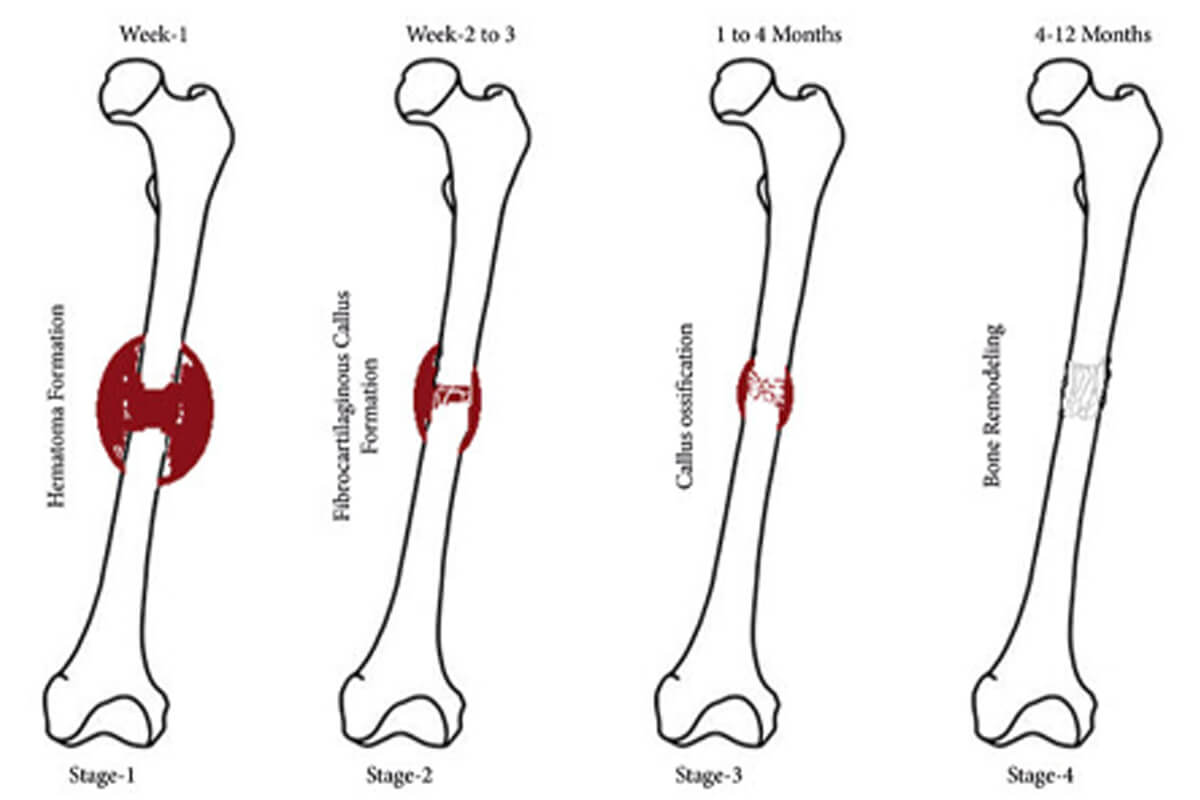People who struggle with limb disparities or low stature may benefit from limb lengthening, which is a technique that may completely transform their lives and open up new options. The healing process and a good recovery are both significantly impacted by the appropriate diet that is consumed after surgical procedures. In this article, we will explain the significance of nutrition in the process of bone healing, emphasize the essential nutrients and supplements that are necessary for optimal recovery, and offer further suggestions to maintain bone health during the recovery process following leg lengthening surgery.

-
Importance of Nutrition in Bone Healing
The body of a human being is a highly sophisticated and effective mechanism that is constantly healing itself in reaction to any kind of injury or stress. Rebuilding bone tissue and strengthening the skeletal structure are both processes that are dependent on a wide range of nutrients. The process of bone healing is not an exception to this rule. There are a number of minerals, including calcium, magnesium, vitamin D, and others, that play important roles in the process of bone healing. These nutrients ensure that the recovery process is as efficient and painless as possible.
-
Key Nutrients and Supplements for Bone Healing
Not getting enough nutrients can make it harder for bones to heal, which can cause problems and make rehab take longer. Not getting enough nutrients can make bones weaker, heal more slowly, or even stop bones from forming properly. Not getting enough nutrients before and after leg lengthening surgery can have a big effect on how quickly you heal and how well the operation goes generally.
Calcium
Calcium is a chemical that your bones need to stay healthy because it helps make new bone tissue. During the healing process after leg lengthening surgery, your body needs more calcium to help bones heal. Make sure you eat foods that are high in calcium, like dairy, leafy greens, and foods that have been enhanced, or think about taking a calcium supplement.
Vitamin D
Calcium intake depends on vitamin D. This vitamin helps your body use the calcium you eat. Plus, it helps keep bones strong and the immune system working well. You can raise your vitamin D levels by going outside in the sun, eating foods like fatty fish that are high in vitamin D, or taking a vitamin D pill.
Magnesium
For healthy bones, magnesium is important because it helps the body absorb calcium and builds bone mineral mass. Magnesium-rich foods, such as nuts, seeds, beans, and leafy veggies, can help bones heal after leg lengthening surgery.
Vitamin K
Getting enough vitamin K is important for building bones and keeping bones from losing calcium. Lots of vitamin K can be found in fermented foods like kimchi and natto, as well as leafy greens and cruciferous veggies. Also, make sure you get enough vitamin K in your food or supplements so that your bones heal properly after the height-lengthening process.
Vitamin C
Collagen is an important part of bone tissue, and vitamin C is needed to make it. Plus, it has antioxidants that help keep bones from getting hurt. To help your bones heal after surgery to raise your height, eat vitamin C-rich foods like bell peppers, citrus fruits, and berries.
Protein
Protein is important for making new tissues and fixing old ones. Eating enough protein while recovering from leg stretching surgery can help the bones heal properly. Protein can be found in lean meats, fish, chicken, eggs, dairy products, nuts, seeds, and vegetables.
Omega-3 Fatty Acids
Anti-inflammatory qualities of omega-3 fatty acids can help reduce swelling and speed up bone healing. Omega-3s are found in large amounts in fatty foods like salmon, mackerel, and sardines. Omega-3s can also be found in flaxseeds, chia seeds, peanuts, and other plant-based foods. You could also take a supplement with fish oil or algae.

- Additional Tips for Supporting Bone Healing
Proper Diet
A well-balanced diet full of fruits, veggies, whole grains, lean meats, and healthy fats can give your body the nutrients it needs to heal bones properly after surgery to raise them. To help your healing, make sure you eat a range of foods that are high in nutrients.
Drinking Enough Water
Keeping yourself hydrated is important for your health in general and can also help your bones heal. Water helps nutrients get to the bones and gets rid of waste. Try to drink eight cups of water every day, or more if your needs and amount of exercise allow it.
Doing Exercise
Physiotherapy and movements can help the body heal after surgery by improving blood flow and bone health. Low-impact exercises, like swimming or riding, can help your body heal itself, boost your circulation, and make your bones stronger.
Eating right is an important part of recovering from surgery to lengthen your legs. You can help your bones heal better and get the best results from your surgery by focusing on important nutrients like calcium, vitamin D, magnesium, and vitamin K, eating a healthy diet, staying hydrated, and doing the right kind of exercise.

FAQs
- Is it necessary to take supplements during leg lengthening surgery recovery?
No, you can usually get all the nutrients you need from the food you eat. But some people might do better with supplements to make sure they get enough of certain nutrients. If you want to take vitamins, talk to your medical team first.
- Can I consume caffeine and alcohol during recovery?
Since caffeine and alcohol can slow down bone healing, it’s best to stay away from or limit them while you’re healing. If you do decide to eat them, do so in moderation and talk to your medical team about how much you are eating.
- How long does the bone healing process take after limb lengthening surgery?
Bone repair time after surgery depends on age, health, and how much lengthening was achieved. Normal bone healing can take between 6 and 12 months. In addition to keeping an eye on your progress, your surgeon will give you advice that is tailored to your needs.
- What are some potential complications if I don’t follow a proper nutrition plan during limb lengthening recovery?
If you don’t eat well, your bones may heal more slowly, you may get infections more often, and you may have problems like nonunion (when the bone doesn’t heal right) or malunion (when the bone heals in the wrong place).
- Should I consult with a nutritionist during my recovery?
During your rehab, working with a trained dietitian or nutritionist can be helpful because they can make personalized suggestions to make sure you get all the nutrients you need for the best bone healing. They can also help you with any food limits or preferences you have, which will make it easier for you to eat a healthy, balanced diet while you are healing.
Getting Taller with Limb Lengthening Surgery Turkey
If you are not satisfied with your height, you have several options ahead of you to become taller. The strongest and the most trustworthy one is limb lengthening surgery. If you are looking for reliable and budget-friendly limb lengthening surgery provider, we recommend limb lengthening surgery Turkey through FixTheHeight. FixTheHeight offers you the best physician, and best results with the guarantee of the best prices for limb lengthening surgery Turkey.